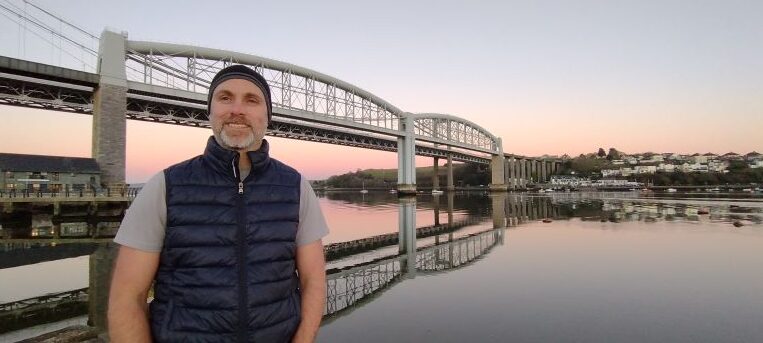As we start 2022, Westcountry Rivers Trust CEO Dr Laurence Couldrick considers how collaborative partnerships such as the Tamar Water Stewardship Business Board are an instrumental part of positive environmental action.
“The Tamar Water Stewardship Business Board (TWSBB) has been operating since 2017, pulling together businesses with an interest in our rivers, our Westcountry farms, and the water they rely on.
Working together, we identify where our collective effort can help improve the resilience of our catchments and our communities, but it didn’t always look like this.
Back in 1994 our rivers were of little interest to all bar the people that spent time in and around them. This included the anglers of the day as well as the National Rivers Authority. Due to the high levels of both point and diffuse pollution a group of likeminded passionate people joined forces and formed Westcountry Rivers Trust.
Straight away we knew that to fix the problems in our rivers we would have to work closely with the those causing the damage, but we knew it wouldn’t work to simply shout about the problems. From the early days we found win-win solutions that would save the farmer money as well as protect the river.
Nutrient management was key as both parties preferred the phosphate in the grass rather than in the river. This approach worked well, especially with increasing farm input costs, but the level of advice needed was huge and we needed more partners. So, it was in 2005 we started to work with South West Water as the biggest water user in the region. Together we developed the now multi-million-pound Upstream Thinking scheme to improve water quality upstream of drinking water abstraction points. On top of this, the relationship also allowed us to highlight issues with South West Water’s own operations as our knowledge of our rivers grew.
As time went by the complexities of how land was being managed deepened, especially regarding the health and condition of our soils. Soil health is one of the hardest things to get right and is fundamental to a resilient catchment, but it is all too often out of site and out of mind. Back in 2015, the Trust set out to form two initiatives. Firstly, the Devon and Cornwall Soils Alliance, to build capacity and capability in soils advice across the region, and secondly, the Tamar Water Stewardship Business Board, a UK pilot project to develop the mechanisms that could help make the buyer and producers message consistent and louder.
Both groups have found their feet and are maturing well and together they form a more consolidated and consistent voice. This voice has never been needed more than it is today. Brexit and Covid have changed the UK farming landscape. There is huge uncertainty out there but the one thing we can do is keep a consistent message – look after your soils, look after your farm, look after your catchment and we will look after you.
The TWSBB does this by creating a steady and common approach across all its business members, whether they are buying milk, meat, or water from within the catchment, and to do so in a way which safeguards their commercial sensitivities. Additionally, just like with South West Water, it has also allowed us to work with those business to take forward their own water stewardship actions and ambitions.
We are proving that by working together we can be more influential and generate more traction than we can on our own.
As we move forwards, these relationships will become increasingly important, and, together with the growing information from our citizen science programme on the health of our rivers, our collective ability to understand where problems are coming from and how we deal with them has never been greater.”
To find out more about the Tamar Water Stewardship Business Board, please email [email protected]

